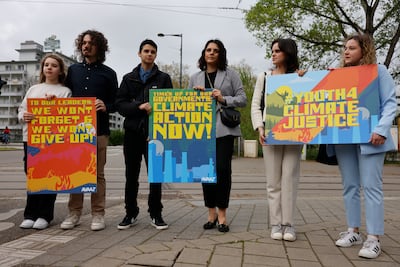Over the past decade, we have seen the rise of new industries such as generative artificial intelligence, blockchain and autonomous vehicles. With this, we are finding that our communication needs to evolve to cater to the changes around us – and that requires new words.
The English language absorbs about 800-1,000 new words every year. Yet there are a number of fields that have not contributed enough to its burgeoning dictionaries.
Language also needs to be more accessible. According to the NeuroLeadership Institute, a survey conducted in America found that when corporate jargon is used, 33 per cent of upper management does not know what it means.
In recent years, sustainability has been a buzzword, but the concept itself incorporates hundreds of words and complex terminology that have been put forward by scientists. This naturally creates a disconnect.
Climate change language can sometimes feel as if it is reserved for experts in the field, which should not be the case. People need to be able to have conversations around such an important topic, particularly when it affects us all. Our planet was perfectly designed with interconnected ecosystems, each supporting the other. As humans, we need to understand these systems, and this is where communication plays an integral role.
How can we make sure that this language is accessible globally? One way is for people to understand the terminology in their own language.
However, this also requires a considered effort, as allowing multiple languages to evolve naturally to encompass these concepts will simply take too long. Consider how quickly words related to sustainability are evolving as we better understand what is happening and find words to describe not only environmental phenomena but also social phenomena such as climate justice. Amid this climate emergency, we are expected to make the vocabulary around sustainability mainstream even as a number of languages could be struggling to keep up.

We must be able to tell our story in the region in a culturally acceptable way. Despite the Arab world hosting two Cops, we are still behind in making their language more accessible for journalists. We recognised this at the UAE Independent Climate Change Accelerators, and we took the initiative to create a dynamic climate glossary as a toolkit for writers, journalists, or anyone who might be curious. The glossary offers definitions of the most commonly used Arabic and English words in the climate field.
Now we want our peers, subject-matter experts and members of our community to participate in growing this toolkit with their own submissions. It is only through our collective efforts that we will be able to adapt the way we communicate so that we may freely voice our challenges and collaborate in building solutions. This also allows us to preserve the wisdom of our ancestors, who were greatly connected to our land, for future generations.
I remember taking a linguistics course and realising the stark reality that 90 per cent of languages will disappear in the next hundred years. Lost languages mean lost cultures and traditions.
I find Robert Macfarlane’s book The Lost Words beautifully thought-provoking. Macfarlane points out that because children don’t spend enough time outdoors these days, words such as “ivy” and “otter”, as well as those of other flora and fauna, will soon disappear from the next generation’s vocabulary. Ensuring that our children can name our native plants and animals is imperative.

We must also involve the youth in being an active part of this linguistic evolution.
I recently came across an organisation called Climate Cardinals, which is translating climate-related documents beyond the UN’s six recognised languages. I am proud to see more than 8,000 youth globally volunteering for such an important cause, covering content in a hundred languages.
If we want people to get inspired to take climate action, we need to move away from the message of doom and gloom, which often leads to helplessness. Instead, I encourage people to connect through storytelling. Stories are moving, and they make it much easier to grasp the emotions and the “why”, than numbers or statistics can.
The Climate Tribe, a digital storytelling platform and community hub, was created for this very reason. Bringing together various media formats, from written stories to photography, films and podcasts, the idea was to make these stories as accessible as possible.
Our aim through this initiative is to bring to light the efforts of a number of people in the region and around the globe who are taking climate action within their communities. For this reason, the content on our Arabic platform is not simply a mirror of the English website and has been carefully curated to resonate with our region.
Let’s keep making climate more accessible and enjoyable, because nature is pure joy.


